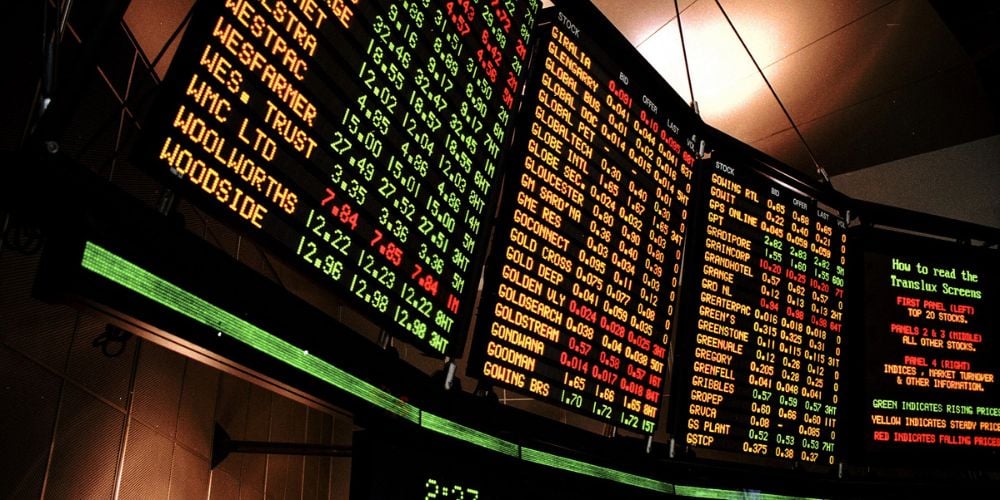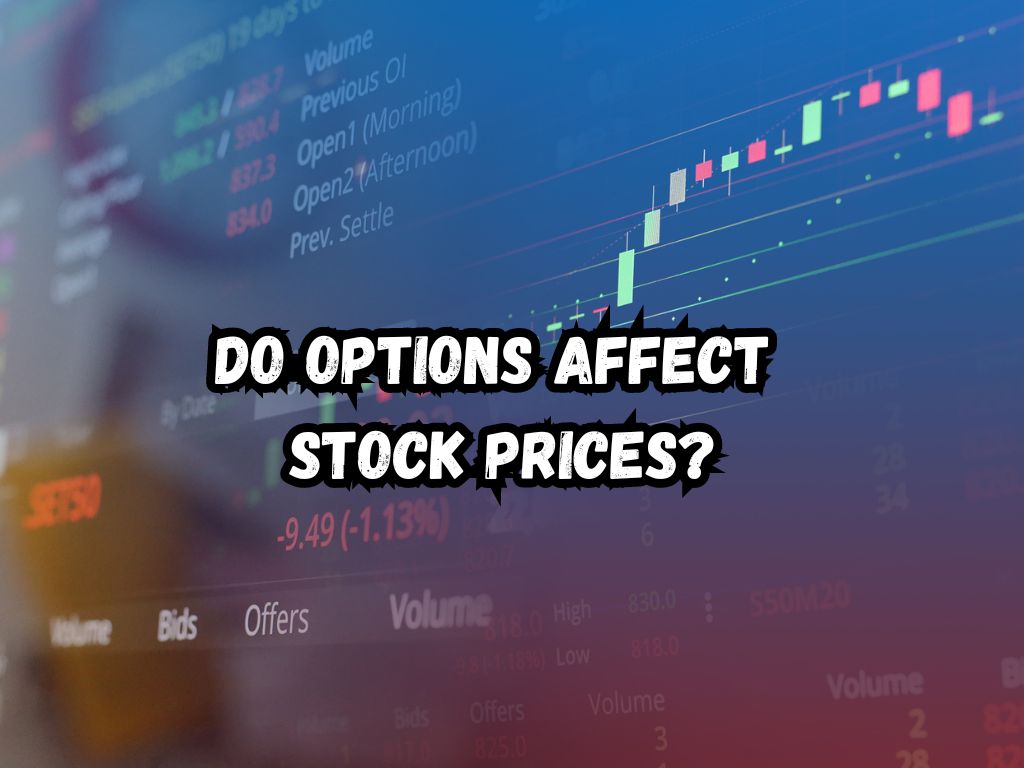The financial market is a complex ecosystem where various instruments, including stocks and options, interact with each other. Among investors and traders, a common question arises: do options affect stock prices?
The straightforward answer is yes, but the dynamics of this relationship require a deeper understanding.
Do Options Affect Stock Prices?
Options are financial derivatives that give buyers the right, but not the obligation, to buy (call options) or sell (put options) an underlying asset at a specified price before a certain date.
They link closely to stocks, as their value is partly derived from the price movements of the underlying stock.
What are Options?
Options trading involves two main types: calls and puts. A call option allows the holder to buy a stock at a predetermined price, while a put option lets the holder sell a stock at a predetermined price.
These instruments offer investors flexibility and leverage in their trading strategies.

Relationship Between Options and Stocks
Options and stocks are intrinsically connected. The price of an option is directly influenced by the price movements of its underlying stock.
Conversely, options can also impact stock prices, albeit indirectly. This reciprocal relationship forms the basis of our exploration.
How Options Can Affect Stock Prices?
Delta Hedging and Market Makers
Market makers play a vital role in maintaining liquidity in the options market. They engage in delta hedging to manage the risk associated with their positions.
This strategy involves adjusting their stock holdings based on the delta of their options positions.
These adjustments can, in significant volumes, move stock prices, especially for stocks with smaller market capitalizations.
Volume and Open Interest
The volume of options contracts and open interest (the total number of open options contracts) can signal investor sentiment toward a stock. High volume and open interest in call options might indicate bullish sentiment, potentially uplifting the stock price as more investors buy into the optimism.
Conversely, high interest in put options might signal bearish sentiment, possibly leading to downward pressure on the stock price.
Events Leading to Expiration Date
As options approach their expiration date, peculiar behaviors can emerge. The “pinning” effect refers to the tendency of a stock’s price to close near a heavily traded option’s strike price at expiration.
This phenomenon suggests an alignment between options market activities and stock price movements.
Additionally, there’s the potential for market manipulation, where large investors might aim to influence a stock’s price to benefit their options positions. However, such practices are closely monitored and regulated.
Psychological Impact
Large positions in options can also steer trading behavior and market speculation.
If investors perceive significant activities in the options market, they might adjust their stock positions accordingly, thereby influencing stock prices.
These psychological factors add another layer of complexity to the relationship between options and stock prices.
Examples and Case Studies
Consider a company with an impending product launch. Ahead of the announcement, options trading in call options spikes, reflecting investor optimism. This spike can lead to increased buying pressure on the stock, driving up its price.
Such cases highlight the indirect ways options can influence stock prices through market sentiment and speculative trading.

Pro Tips for Traders and Investors
Traders can gain insights into market sentiment by monitoring options volume and open interest.
For instance, an unusual increase in call options volume might signal potential upside movement in the stock price.
However, it is essential to combine this analysis with other market data and news to form a comprehensive view.
Frequently Asked Questions
Do call options increase stock prices?
Buying call options does not directly affect stock prices. However, related trading activities, especially by market makers in managing their positions, can have an indirect impact.
Why do stocks go up when options expire?
Stocks may go up or down as options expire, influenced by traders adjusting their positions and the pinning effect. This movement is not a rule but an observation based on past market behaviors.
Can options trading predict stock prices?
Options trading offers clues about investor sentiment and potential stock price movements. However, it is not a crystal ball. Other market factors must also be considered.
How do put options affect stock prices?
Like call options, put options themselves do not directly affect stock prices. However, significant trading activity in puts can indicate bearish sentiment, possibly influencing investor behavior and indirectly impacting stock prices.
Conclusion
Options trading does influence stock prices, albeit in a roundabout way. Through delta hedging by market makers, signals of investor sentiment from options volume and open interest, and the psychological impact of options positions, the options market is a vital component of the broader financial ecosystem.
Traders and investors should appreciate this relationship, as it opens up strategic opportunities and necessitates a nuanced understanding of market dynamics.


 Tags:
Tags:










